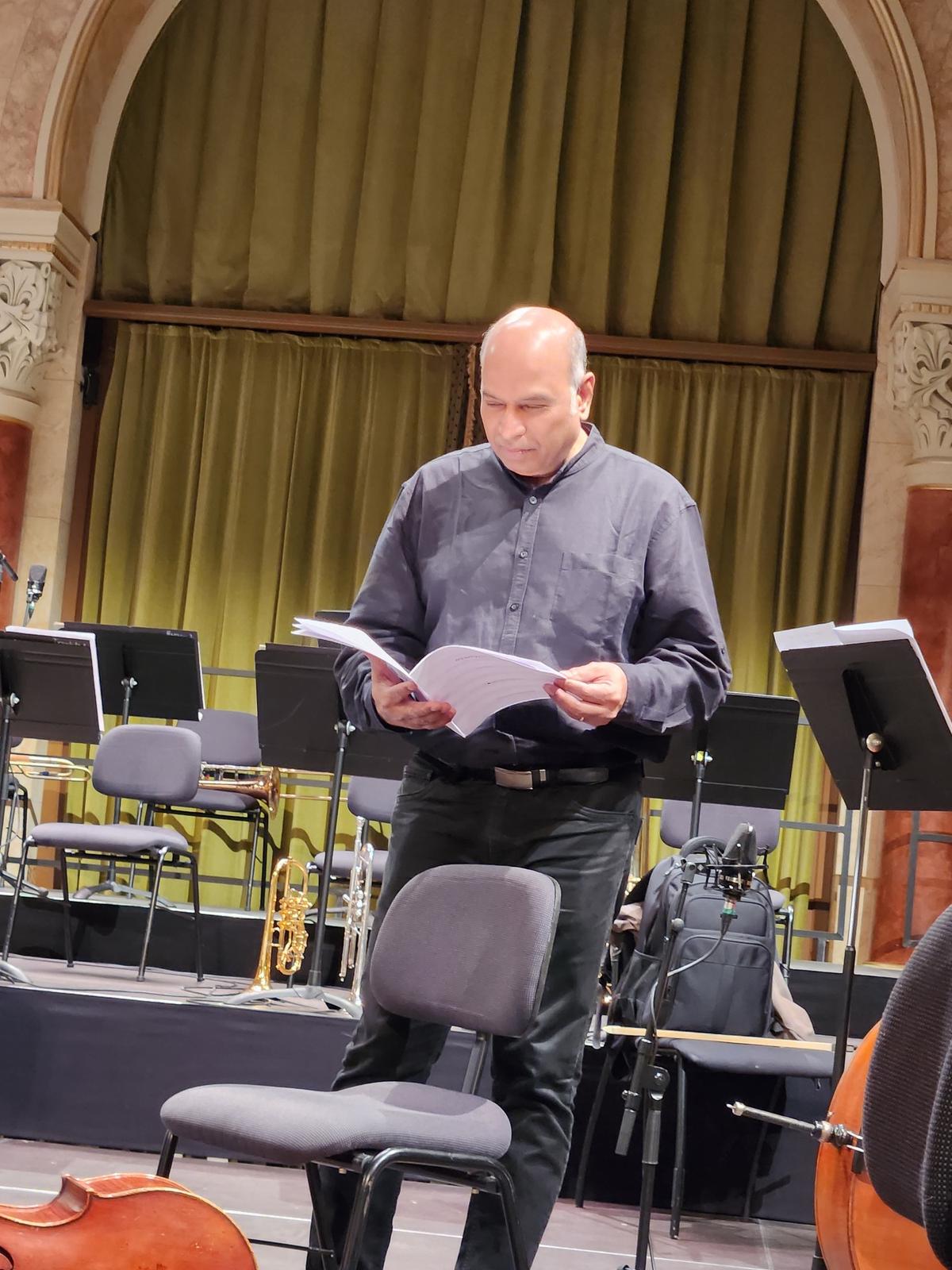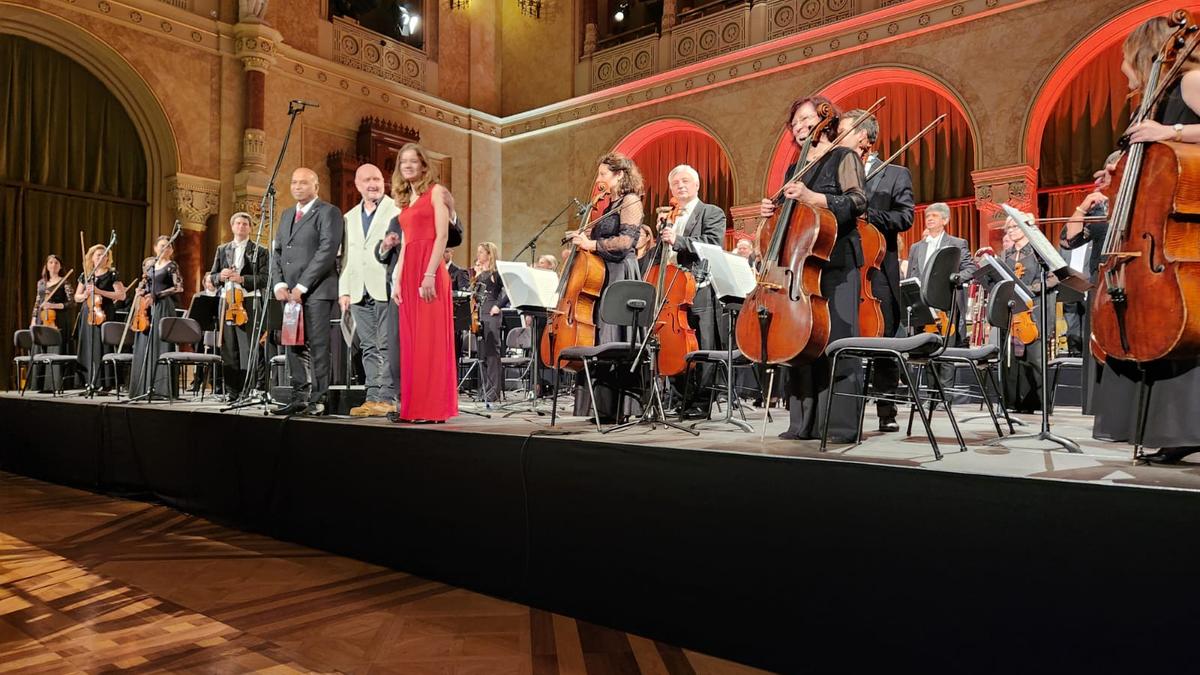In a moment suspended between worlds — ancient China and 19th-century Vienna — a quiet spark leapt across centuries to ignite the imagination of a composer in Chennai. It was 2018, and Ganesh B Kumar, city-bred musician, stumbled upon a quote by Confucius: ‘Our greatest glory is not in never falling, but in rising every time we fall.’
In that moment, Beethoven’s spirit seemed to stand before him, breathing through the words of the Chinese philosopher. Thus began RISE: Symphony No.1 in D minor — a work that had its world premiere last Sunday at the Ceremonial Hall of the Pesti Vigadó in Budapest, performed by the Budapest Symphony Orchestra under the baton of Viennese conductor Anthony Armore.
The evening marked a rare meeting of the past and present: a composer from Chennai offering a musical reflection on Beethoven’s struggles, in a hall that has long borne witness to the enduring conversation between music and history.
“At first glance, Confucius and Beethoven seem far apart,” says Ganesh. “But that day, something told me otherwise. Beethoven’s life was the embodiment of those words — enduring deafness, despair and illness, yet continually rising to create music that would outlast his time.”
Structured in three movements, RISE navigates Beethoven’s emotional landscape with deliberate design. The first movement, Arrival of the Legend, moves in Allegro con brio, capturing Beethoven’s commanding arrival in the world of music with an energy that feels urgent but controlled. The second, Introspection, unfolds at an Andante pace — slower, reflective, allowing space to absorb the magnitude of Beethoven’s inner struggles. The third, Undisputed Numero Uno, set at Allegro con moto, drives forward with momentum, tracing the resilient climb toward lasting triumph.
At the heart of RISE lies a quiet reimagining of one of music’s most recognisable themes: the ‘ta-ta-ta-taaa’ motif from Beethoven’s Fifth Symphony. Traditionally, it is built on a falling third, suggesting fate or struggle. Ganesh turned it upward — into a rising fifth — a choice that changes its character without losing its identity.

Ganesh B Kumar’s new work is a meeting point for traditions.
| Photo Credit:
Special Arrangement
“Beethoven saw destiny knocking at his door with that motif,” says Ganesh. “But when we look at his life in full, it speaks more of rising, not falling. I wanted to keep the rhythm and pulse but lift the energy.”
The symphony’s own journey to the stage has reflected the ideas it holds. Ganesh recorded RISE in Germany in 2019, preparing for a scheduled premiere in Poland, a country closely tied to his earlier work, The Journey. Dates were set; rehearsals planned. Then came 2020 — and with it, the closures that silenced concert halls around the world. “It felt like waiting inside a storm,” Ganesh recalls.
Rather than waiting indefinitely, Ganesh and his collaborators chose another path. His label, Navona Records, released the recordings of RISE and The Journey together under the title ‘Spirit of Humanity’. It was a fitting moment. That year marked the 250th anniversary of Beethoven’s birth and the 75th year since the end of World War II — two milestones tied deeply to the spirit of both compositions.
When RISE finally reached a live audience in Budapest last Sunday, it carried the imprint of that long preparation. The Pesti Vigadó, standing by the Danube, provided a setting layered with history. As the music rose through the hall, it offered a reflection not only of Beethoven’s endurance but of the patience and persistence needed to bring any creative vision into being.
Ganesh’s voice as a composer is shaped by a meeting of traditions. Though RISE is written in the language of Western classical music — with its sonata forms and tonal structures — its emotional ground is drawn from the Indian ethos he grew up with.
“The thought behind the music comes from my Indian upbringing,” says Ganesh. “But the structure I chose to express them is Western classical.”
In RISE, the descending phrases capture the pull of Beethoven’s challenges, while the ascending ones embody his refusal to yield.
“I hope people see themselves in the music,” he says. “That they feel, in their own way, what it means to fall and to rise again.”
For Ganesh B Kumar, music has always been more than sound. It is the act of remembering, and also of moving forward. It is the story of rising — one quiet step at a time.
Published – May 01, 2025 03:54 pm IST







Leave a Reply